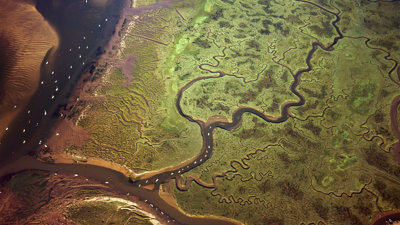Field researchers have a responsibility to work to the highest standards of scientific integrity and ethical practice. These are essential parts of all field research, across all subjects, methodologies, project sizes, regardless of the researchers involved or the locations where the studies are undertaken.
Why consider ethics?
Ethical scrutiny should underpin all aspects of all field research projects, it is not confined just to studies working with people.
It is essential in order to:
- Ensure the protection and wellbeing of individuals who both participate in and undertake the research. This will minimise the potential for harm or negative consequences.
- Build strong, equitable and fair collaborations, both for the duration of project and into the future. This should maximise the experience and expertise of all involved and ensure everyone is valued and respected.
- Ensure the validity, reliability and security of all data collected and any conclusions and recommendations made.
- Make the most of research findings and outputs, with a positive impact to a broad range of stakeholders.
Done well, research which upholds high standards of ethics, quality, transparency and integrity can produce lasting positive outcomes.
Ethics and the lifecycle of a project
Considerations of ethics should be incorporated in the full lifecycle of a field research project. This should start from the early planning stages and continue through to the dissemination of the work and legacy of the project. Collaboration should be an overarching principle.
Key principles of good, ethical research practice
There are key ethical approaches and principles that should underline all research. While these are often worded and framed in different ways (Strle et al. (2015), PDF); ALLEA (2023); Universities UK, (2019, PDF); The Royal Society, (2017), there are important commonalities for example related to similar principles of rigour, reliability, reproducibility, integrity, honesty, respect, accountability, transparency, care and responsibility.
A good first checklist with questions to consider before, during and after your research is provided by the UK Research Integrity Office Code of Practice for Research.
Ethics statement examples
A collection of example ethics statements for research projects is provided by the UKRI Economic and Social Research Council. These provide a helpful insight into ‘real world’ ethical issues faced in field research and how these are mitigated. You will recognise a lot of the points raised in this resource within the example statements.
Explore our related resources on topics within the theme of responsible and ethical fieldwork.
- Working on or with people
- Working in or on an environment
- Working in a team (research collaborations and partnerships)
- Using research findings
Resources
Checklist for Researchers
UK Research Integrity Office
A one-page checklist with key points of good practice in research. The document goes on to provide general principles and standards for good practice in research, applicable to all subject areas, with more detailed guidance on topics including research design, collaborative working, research with participants, finance and publication and authorship.
The European Code of Conduct for Research Integrity
All European Academies (ALLEA)
Four key principles of research integrity with concise descriptions of good research practice across contents including research environment, research procedures, data practices and management, collaborative working and publication and dissemination.
The Concordat to Support Research Integrity
Universities UK
A series of commitments which aim to ensure research is underpinned by the highest standards of rigour and integrity. Contains a useful list of elements which should be in place, and actions researchers should take, to align with these commitments.
Royal Society Research Integrity Statement
The Royal Society
A one-page statement with key principles and behaviours which should be followed to maintain high standards of ethics and integrity when undertaking research.
Singapore Statement on Research Integrity
World Conferences on Research Integrity
Four key principles and 14 responsibilities developed by 340 individuals from 51 countries, representing the first international effort to develop unified policies, guidelines and codes of conduct, to foster greater integrity in research worldwide.
A Guide to applying: the AIATSIS Code of Ethics for Aboriginal and Torres Strait Islander Research
Australian Institute of Aboriginal and Torres Strait Islander Studies (AIATSIS)
Although set within a specific cultural content, this guide provides a very good resource when considering how to implement ethical principles and best practice (which exist broadly for all research with and in communities), throughout the lifecycle of a project.
Australian Code for the Responsible Conduct of Research 2018
National Health and Medical Research Council, Australian Research Council and Universities Australia. Commonwealth of Australia, Canberra.
Outlines eight key principles as the hallmarks of responsible research conduct.
Ethics statement examples
UKRI Economic and Social Research Council (ESRC)
Examples of ethics statements for proposals submitted to the ESRC, which illustrate ‘real world’ examples of ethics issues faced in field research, and examples of how these are considered and mitigated.
References
- Strle, G., Benčin, R., Šumič-Riha, J., Riha, R. (2015). Ethics assessment in different fields. Natural Sciences. Stakeholders Acting Together on the Ethical Impact Assessment of Research and Innovation-SATORI. Access this resource (PDF).
- ALLEA. (2023). The European Code of Conduct for Research Iintegrity – Revised Edition 2023. Access this resource.
- Universities UK. (2019). The Concordat to Support Research Integrity. Access this resource.
- The Royal Society. (2017). The Royal Society’s Research Integrity Statement. Access this resource.
The Society does not take responsibility for the content of external sites. Inclusion on this page does not equate to an endorsement of any content or organisation. Please contact the external site for questions regarding individual resources.

